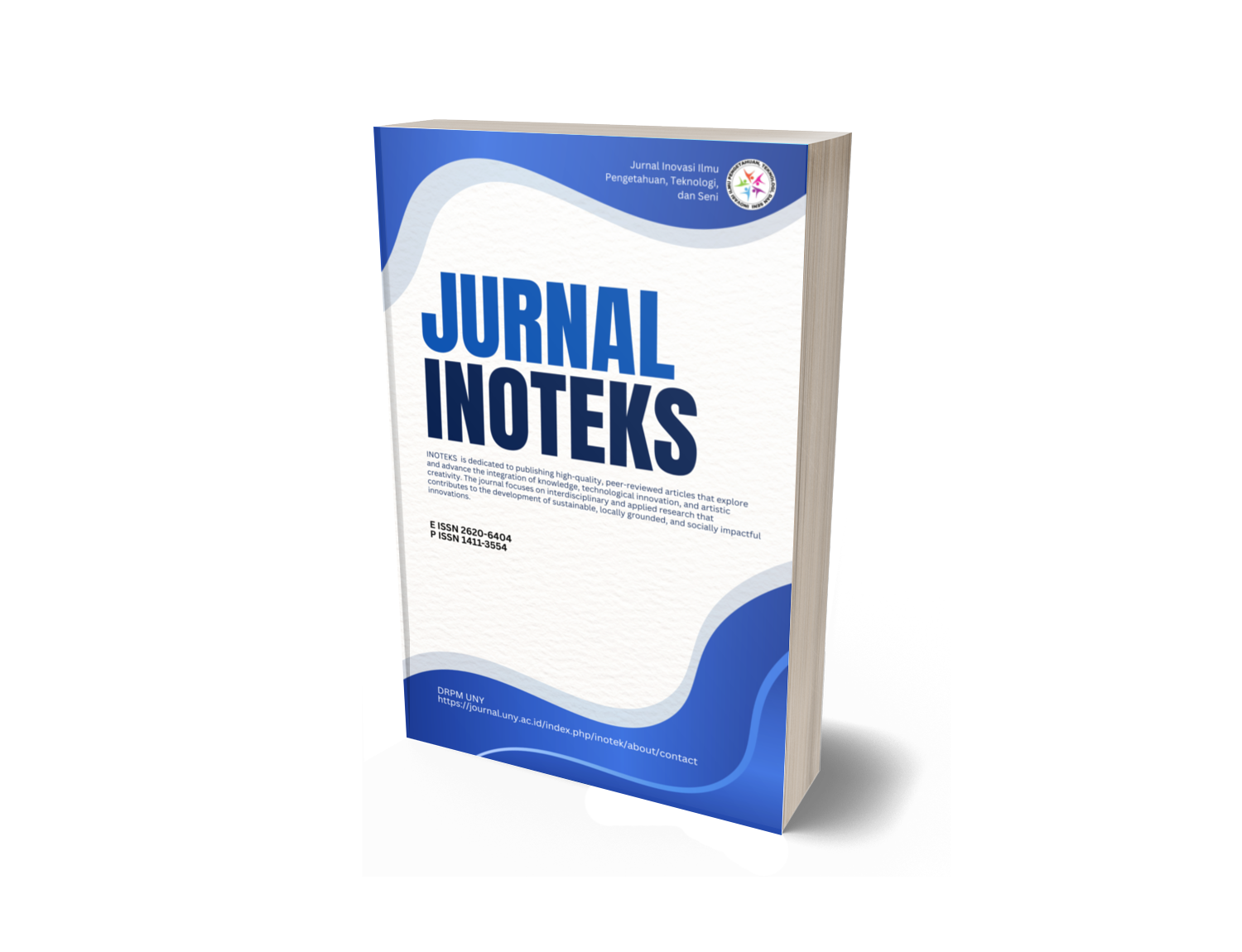TEKNOLOGI PENGOLAHAN DAN PENGAWETAN JAHE SEBAGAI KETERAMPILAN GURU SMK DALAM UPAYA MENGEMBANGKAN KEWIRAUSAHAAN SEKOLAH
DOI:
https://doi.org/10.21831/ino.v14i1.2287Abstract
This civil serving program was aimed to give alternative skill for
vocational school`s teacher especially business and management group. It was hoped can develop entrepreneur`s school, especially in technology and processing and preservation technologies ginger.
This activity follow by vocational school' teacher especially bussines and
management group in Sleman district. There are SMK N 1 Tempel, SMK N 1
Godean, SMK Muhammadiyah 2 Moyudan, SMK Muhammadiyah 1 Tempel,
SMK N 1 Depok, SMK YPKK 1 Sleman, dan SMK YPKK 2 Tempel. Twenty teacher have deputy of the sample to this program. The teaching method which is used to support this program successfully are speech, answering a question, practice, and industrial survey. The practice was done twice by making seven kinds product of ginger.
The result of civil service program by programmer and followers is very
satisfying. It can be seen by absence and follower's anthusiasm. The result of practice are well and maximum. Product which is made from ginger with good procedureDownloads
Published
How to Cite
Issue
Section
Citation Check
License
- Authors certify that the work reported here has not been published before and contains no materials the publication of which would violate any copyright or other personal or proprietary right of any person or entity.
- Authors transfer or license the copyright of publishing to Jurnal Civics: Media Kajian Kewarganegaraan to publish the article in any media format, to share, to disseminate, to index, and to maximize the impact of the article in any databases.
- Authors hereby agree to transfer a copyright for publishing to Jurnal Civics: Media Kajian Kewarganegaraanas a Publisher of the manuscript.
- Authors reserve the following:
- all proprietary rights other than copyright such as patent rights;
- the right to use all or part of this article in future works of our own such as in books and lectures;
- use for presentation in a meeting or conference and distributing copies to attendees;
- use for internal training by author's company;
- distribution to colleagues for their research use;
- use in a subsequent compilation of the author's works;
- inclusion in a thesis or dissertation;
- reuse of portions or extracts from the article in other works (with full acknowledgement of final article);
- preparation of derivative works (other than commercial purposes) (with full acknowledgement of final article); and
- voluntary posting on open web sites operated by author or author's institution for scholarly purposes, but it should follow the open access license of Creative Common CC BY-NC-SA License.









